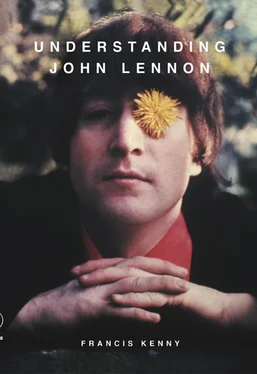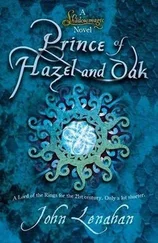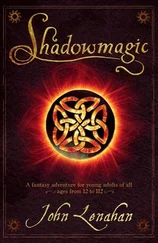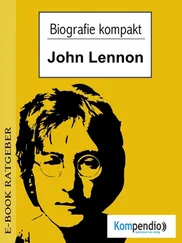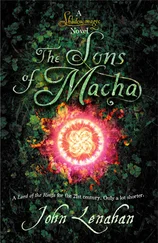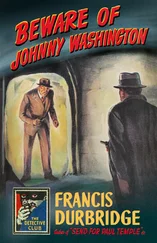The important term of reference here from John is ‘most mothers’. This could be a subconscious term intended to deflect directly from Mimi and couch the cry for help and understanding by denial of the emotional distress he was going through.
Child psychologist Alice Miller’s research showed that
repressed pain blocks emotional life and leads to physical symptoms. And the worst thing is that, although the feelings of the abused child have been at the point of origin, that is, in the presence of those who caused the pain, they find their voice when the battered child has children of his own. 14
John’s confused childhood entered a new phase when, at the age of 10, he had to live with total strangers. These strangers were Mimi’s lodgers – local university students who rented out the spare rooms at Mendips. Mimi moved her and George’s bedroom into the downstairs living room, which left John upstairs in his box room flanked by a yearly change of students. An interview for the Liverpool Echo by one of Mimi’s old lodgers revealed that she ‘targeted’ male students from the Veterinary Department of the university. This particular department was chosen so that free, professional pet care could be doled out to her three cats and John’s dog, Sally. Not only were the students expected to provide free pet care but they had to endure ‘greasy breakfasts, sometimes with cat hairs floating in them’. 15Julia Baird remembers the young John being taught ‘The Dirty Alphabet’ by one of these student lodgers which entailed ‘A is for Arse, B is for …’ Well, you get the idea. What other introductions made towards the adult world of sex by this conveyor belt of students is anyone’s guess. In Hunter Davies’ authorised biography, The Beatles , he reveals nothing at all of John having an annual round of new faces to share his home with. There was certainly no mention of one of the very early students from Yorkshire, Michael Fishwick, a student of biochemistry who would later return to Mendips while completing his PhD.
The introduction of these lodgers may have served Mimi well, providing additional monies and free pet care, but for John, beside the issues of his privacy and sheer uneasiness of the situation, he was constantly reminded by these young men of the educational path he was expected to take: O Levels, A Levels and then university, like many other pupils at Quarry Bank. The pressure of a grammar school education was compounded by the constant reminder at Mendips to apply and adapt to the homilies of ‘getting on’ in life by ‘building character’ and ‘a need to learn right from wrong’. Mimi never missed an opportunity to self-publicise herself as a caring mother substitute – ‘firm but fair’.
Mimi’s explanation for taking John with the aid of social workers from Julia centred on the ‘love’ she had for him the instant she saw him. This follows Mimi’s fairytale ‘mad dash through German bombs’. In her mind she had no competition in writing the history of John and Mendips. In all the interviews she gave, she never once mentions at any point spending time with John as a baby or toddler, not one word to the effect of buying baby John clothes, a pushchair or toys. Not one word of going on days out with toddler John or trips to the park or cinema, nothing .
These omissions are strange when one considers the complete ‘accuracy’ Mimi gave to every little detail she had in John’s upbringing from birth to adulthood. Only when John was taken to Mendips was there any recollection of her involvement with the child. The story of Mimi being besotted with John as a newborn baby appears to have been essentially a smokescreen for what she would carry out with the aid of Liverpool Corporation Welfare Department five years later. Mimi took Julia’s child not for any altruistic means, but because she wanted to and she could. The manipulation, threats and total insensitivity to the needs of young John would ultimately leave him psychologically scarred. Later, John would recall that he had a ‘subconscious urge to get above people or out of a rut’ 16and in terms of his childhood, ‘nothing would drive me through all that if I was normal’. 17John’s reflection of his childhood was honest and heart-rending:
The worse pain is that of not being wanted of realising your parents do not need you in the way you need them … When I was a child I had experience of not wanting to see the ugliness, not wanting to see not being wanted. This lack of love went into my mind and into my eyes. 18
John was plainly aware of how the perceived absence of love in his life tainted his perception of the world. A double blow for John was that he was conditioned to judge and dislike his parents and hence be dependent on Mimi, who in turn left him in emotional turmoil. John’s feelings for Julia and Freddie became increasingly complex and confused. Cynthia Lennon, a first-hand observer of Mimi and John’s relationship, commented:
She loved to fuel the image of the stern but loving aunt who provided the secure backdrop to John’s success. But that wasn’t the Mimi I knew. She battered away at John’s self-confidence and left him angry and hurt. 19
Hunter Davies explains what happened when Mimi insisted he sent her a draft copy of The Beatles :
… she had hysterics. The manuscript came back with almost every paragraph which concerned John’s childhood heavily crossed out or amended. In the margins she had written beside John’s own quotes such things as ‘Rubbish’, ‘Never!’. She denied so many of John’s own memories of his childhood, especially if they contradicted her memories of the same people or events. 20
As John slowly developed a capacity for self-reliance, his arguments with Mimi grew. There were painful consequences. John’s emerging self-assurance was closely matched to his confidence in his writing, but this would often be frustrated and criticised by Mimi:
I used to say, ‘Don’t you destroy my papers.’ I’d come home when I was 14 and she’d rooted through all my things and threw all my poetry out. I was saying, ‘One day I’ll be famous and you’re going to regret it’. 21
Mimi went to even greater lengths to curb this sense of independence. At a time when John was forming a stronger relationship with his mother, his visits to Blomfield Road having significantly increased, Mimi stepped up her opposition. Continuous quarrels developed over these visits, which Mimi venomously opposed. One weekend visit turned into a particularly hurtful episode after John threatened to stay with his mother. When John returned to Mendips a couple of days later, he found that Mimi had had his dog Sally, who he had owned since Junior School, destroyed. Mimi’s excuse was that 14-year-old John had threatened not to return and she wasn’t going to walk his dog. So, in the space of a weekend, she had no choice but to have the dog put down. John’s life-long friend Pete Shotton recalls that it was ‘one of the few times [he] ever saw John cry, after he returned home from Julia’s house and found Sally missing’. 22John’s ‘big brother’, cousin Stanley, believed that the fate of the dog, ‘which he adored’, dramatically affected him. His feeling towards Mimi changed, hardened and ‘he never forgave her for that’.
The story of John’s childhood has largely been told through the narratives of Mimi. Major ‘players’ such as Julia, Freddie and the Stanleys have been silenced, discredited or been persuaded to accept Mimi’s version of events. John’s sister, Julia Baird, has stood out amongst those writers on John’s history in her attempt to bear witness for their mother, and has sought to reveal a more accurate picture of John’s life. She argues:
Mimi lived for 11 years after John and she continued to rewrite her story. She said, ‘I knew I wanted John from the moment I first saw him.’ We all like our sister’s children, but she made all that up. Give her another 50 years and she’d have claimed she had John herself. 23
Читать дальше
